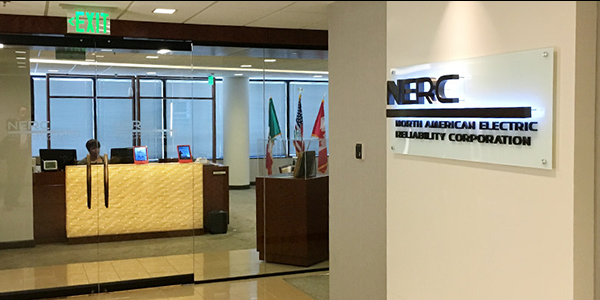With no end in sight to the COVID-19 pandemic, NERC announced on Thursday that the ERO Enterprise will extend the expansion to its self-logging program implemented in May and further defer on-site activities such as audits and certifications. Both policies will now continue through the end of 2020 “to allow registered entities to … focus their resources on keeping their workforces safe and the lights on.”
Monthly Filing to Continue for Minor Issues
The self-logging program allows utilities, with permission of their regional entities, to log some instances of potential noncompliance with NERC reliability standards for future review by the ERO Enterprise rather than submitting self-reports for each incident. Events logged in this manner are typically resolved as compliance exceptions and are not included in a registered entity’s compliance history for penalty purposes.
Under normal circumstances, only events that pose minimal risk to the bulk power system are eligible for self-logging. NERC’s updated guidance expands the program’s application to instances of noncompliance that pose either a minimal or moderate risk to the BPS and are caused by “actions to address coronavirus impacts [that] alter the normal course of business operations.” (See NERC Expands Self-logging During Pandemic.)
In addition, while the expansion is in effect, all registered entities, regardless of whether they are already part of the program, will be allowed to self-log relevant noncompliance events with their REs. However, utilities that were not already part of the program will not be able to do so for instances of noncompliance that are not pandemic-related and will not be considered enrolled in the program when the guidance expires on Dec. 31.
Deferred Actions Seen as Necessary Evil
NERC and FERC, NERC Relax Compliance in Light of COVID-19.) The package required REs to consider the coronavirus an acceptable reason for failing to obtain and maintain personnel certification, and to perform periodic actions required by reliability standards on a case-by-case basis.
FERC also agreed in April to a request by NERC to defer the implementation of seven reliability standards scheduled to take effect this year, including standards related to supply chain cybersecurity, personnel training, coordination of protection systems, disturbance monitoring and reporting, and generator relay loadability. (See FERC Agrees to Defer Standards Implementation.)
The further extension of relief measures indicates that NERC and the ERO Enterprise expect the pandemic’s burdens on utilities to continue for the foreseeable future. According to NERC’s 2020 Summer Reliability Assessment, released in June, the organization expected the coronavirus to pose a significant challenge to the reliable operation of the BPS through the end of the season and beyond. (See COVID-19, Hurricanes Among Biggest Summer Threats.)
NERC’s concerns partially stemmed from the relaxation of mitigation measures by state and local governments that could lead to a “resurgence in virus activity” requiring sequestration of staffers at utilities, supporting services and supply chains. Data from the Centers for Disease Control and Prevention may bear this prediction out, with the seven-day average for new cases in the U.S. rising from about 20,000 in mid-June to nearly 67,000 in late July.
Utilities’ efforts to protect staff from the outbreak, such as deferring facility maintenance and upgrades, and retirement of existing facilities, are also expected to cause headaches later on because of “higher-than-expected forced outages” during peak demand periods.






